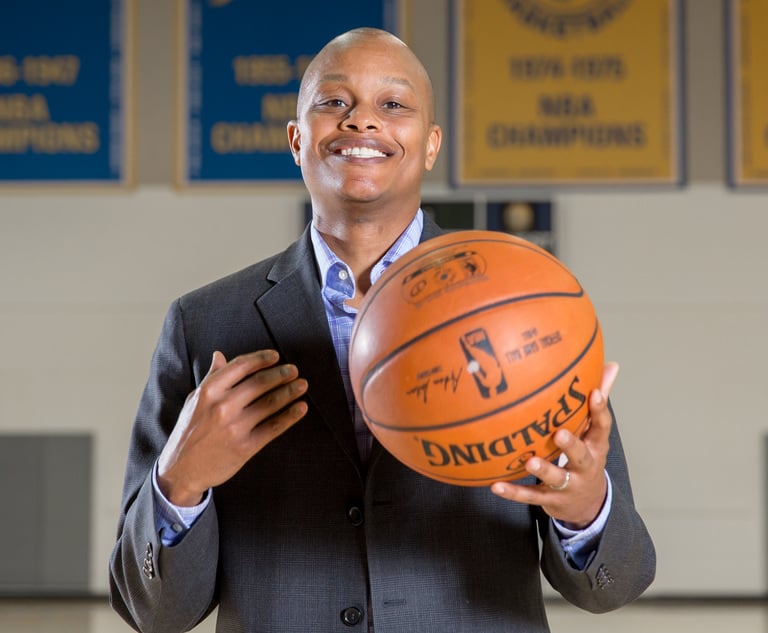Calif. Justices Leave Questions Hanging Over Defendant's Access to Private Social Media Posts
The decision is a mixed bag for social media companies, and leaves open the question of whether criminal defendants can access private or deleted posts from witnesses under the Stored Communications Act.
May 24, 2018 at 04:23 PM
6 minute read

The California Supreme Court on Thursday handed down a mixed-bag decision for Facebook, Instagram and Twitter in a case centered on whether criminal defendants can have access to social media posts by witnesses and others involved in an alleged crime.
In a unanimous 59-page decision written by Chief Justice Tani Cantil-Sakauye, the court ruled that social media service providers must comply when receiving a subpoena for posts marked as public by the user. The court rejected arguments by the companies that they have discretion not to comply under the federal Stored Communications Act.
But the court also agreed with the companies involved in the case, Facebook v. Superior Court (Hunter), that posts marked as private—or shared to a limited number of followers or friends—generally may not be disclosed to criminal defendants under the SCA, even if the intended recipients were a large group of people.
“The legislative history [of the SCA] suggests that Congress intended to exclude from the scope of the lawful consent exception communications configured by the user to be accessible to only specified recipients,” Cantil-Sakauye wrote.
“There is no indication in the legislative history of any intent to do otherwise in the case of communications sent by a user to a large number of recipients who, even in 1986 when the act was adopted, could have shared such communications with others who were not intended by the original poster to be recipients.”
The court, however, punted on the larger question of whether the SCA's prohibition on disclosing private posts in such cases is unconstitutional, or whether they may be disclosed under the “lawful consent exception” contained in Section 2702 of the law. Instead, it directed the trial court to first determine which posts configured as public may be turned over.
“Ultimately, whether any given communication sought by the subpoenas in this case falls within the lawful consent exception of Section 2702(b)(3), and must be disclosed by a provider pursuant to a subpoena, cannot be resolved on this record,” the chief justice wrote.
“Because the parties have not until recently focused on the need to consider the configuration of communications or accounts, along with related issues concerning the reconfiguration or deletion history of the communications at issue, the record before us is incomplete in these respects,” she added.
Riana Pfefferkorn, a fellow at Stanford Law School's Center for Internet and Society, said the decision is “a win for users, because it correctly reads the SCA as being protective of their privacy.” But she also acknowledged that it does not resolve the larger questions of if or when defense counsel may gain access to private posts on social media.
The only direct benefit for criminal defense lawyers from the decision, Pfefferkorn said, is that it requires social media providers to package up more nicely public data that lawyers can already access. “Providers are now on notice that they're presumably going to get a lot more of these types of subpoenas … and that's going to be potentially irksome for providers,” she added.
The underlying case stems from gang-related murder indictments against two men, Lee Sullivan and Derrick Hunter, who are accused of killing a man and seriously injuring a minor during a 2013 drive-by shooting in San Francisco.
Social media has been a focal point of the case. Hunter's 14-year-old brother, who was found guilty of murder and attempted murder in juvenile court, told police he shot the victim as retribution for threats on Facebook and Instagram. Prosecutors also used social media records as evidence before the grand jury.
The defense counsel also hoped that social media data would help swing the case in their favor, and sought private posts by Sullivan's ex-girlfriend in an attempt to show that jealousy motivated her to provide testimony against him.
The trial court ruled in favor of the defendants gaining access to those records, over the objections of the social media companies. But the First District Court of Appeal in 2015 overruled that decision, holding that the defendants had not made a sufficient showing that they had a constitutional right to access the records.
The defendants have maintained throughout the case that they have a constitutional right to the posts under the Fifth Amendment's due process principle, as well as their rights to prepare an effective defense under the Sixth Amendment. They argued that to the extent the SCA impedes those rights, it should be declared unconstitutional.
“We're pleased with the Court's decision to uphold the important privacy protections in the Stored Communications Act,” a Facebook spokesman said in response to the decision. “The Court's opinion shows that Facebook and other companies acted properly in refusing to disclose people's private content in response to subpoenas from criminal defendants. We will continue to advocate for people's privacy.”
Arguing on behalf of the companies in the case was Joshua Lipshutz of Gibson, Dunn & Crutcher. Twitter declined to comment.
Arguing on behalf of the criminal defendants at the California Supreme Court was San Francisco-based attorney Susan Kaplan. She did not immediately respond to a voicemail seeking comment on the decision. Janelle Caywood, who represents Sullivan, said she considered the court's decision a “historic win for the defense.”
“If after remand, public posts prove to be just the tip of the iceberg and there is social media records showing our clients our innocent in private posts, the Supreme Court has said the door is still open for us to argue that the federal constitution requires disclosure,” Caywood added.
The California Supreme Court is also considering another case involving Facebook that touches on the issue of how the SCA applies in criminal proceedings. That case, Facebook v. Superior Court (Touchstone), raises the question of whether a court may compel a victim to produce private social media posts. The case has been fully briefed and is pending oral argument.
This content has been archived. It is available through our partners, LexisNexis® and Bloomberg Law.
To view this content, please continue to their sites.
Not a Lexis Subscriber?
Subscribe Now
Not a Bloomberg Law Subscriber?
Subscribe Now
NOT FOR REPRINT
© 2025 ALM Global, LLC, All Rights Reserved. Request academic re-use from www.copyright.com. All other uses, submit a request to [email protected]. For more information visit Asset & Logo Licensing.
You Might Like
View All
On The Move: Squire Patton Boggs, Akerman Among Four Firms Adding Atlanta Partners
7 minute read

Judge Grills DOJ on Trump’s Birthright Citizenship Executive Order

NBA Players Association Finds Its New GC in Warriors Front Office
Trending Stories
- 1Big Law's Middle East Bet: Will It Pay Off?
- 2'Translate Across Disciplines': Paul Hastings’ New Tech Transactions Leader
- 3Milbank’s Revenue and Profits Surge Following Demand Increases Across the Board
- 4Fourth Quarter Growth in Demand and Worked Rates Coincided with Countercyclical Dip, New Report Indicates
- 5Public Notices/Calendars
Who Got The Work
J. Brugh Lower of Gibbons has entered an appearance for industrial equipment supplier Devco Corporation in a pending trademark infringement lawsuit. The suit, accusing the defendant of selling knock-off Graco products, was filed Dec. 18 in New Jersey District Court by Rivkin Radler on behalf of Graco Inc. and Graco Minnesota. The case, assigned to U.S. District Judge Zahid N. Quraishi, is 3:24-cv-11294, Graco Inc. et al v. Devco Corporation.
Who Got The Work
Rebecca Maller-Stein and Kent A. Yalowitz of Arnold & Porter Kaye Scholer have entered their appearances for Hanaco Venture Capital and its executives, Lior Prosor and David Frankel, in a pending securities lawsuit. The action, filed on Dec. 24 in New York Southern District Court by Zell, Aron & Co. on behalf of Goldeneye Advisors, accuses the defendants of negligently and fraudulently managing the plaintiff's $1 million investment. The case, assigned to U.S. District Judge Vernon S. Broderick, is 1:24-cv-09918, Goldeneye Advisors, LLC v. Hanaco Venture Capital, Ltd. et al.
Who Got The Work
Attorneys from A&O Shearman has stepped in as defense counsel for Toronto-Dominion Bank and other defendants in a pending securities class action. The suit, filed Dec. 11 in New York Southern District Court by Bleichmar Fonti & Auld, accuses the defendants of concealing the bank's 'pervasive' deficiencies in regards to its compliance with the Bank Secrecy Act and the quality of its anti-money laundering controls. The case, assigned to U.S. District Judge Arun Subramanian, is 1:24-cv-09445, Gonzalez v. The Toronto-Dominion Bank et al.
Who Got The Work
Crown Castle International, a Pennsylvania company providing shared communications infrastructure, has turned to Luke D. Wolf of Gordon Rees Scully Mansukhani to fend off a pending breach-of-contract lawsuit. The court action, filed Nov. 25 in Michigan Eastern District Court by Hooper Hathaway PC on behalf of The Town Residences LLC, accuses Crown Castle of failing to transfer approximately $30,000 in utility payments from T-Mobile in breach of a roof-top lease and assignment agreement. The case, assigned to U.S. District Judge Susan K. Declercq, is 2:24-cv-13131, The Town Residences LLC v. T-Mobile US, Inc. et al.
Who Got The Work
Wilfred P. Coronato and Daniel M. Schwartz of McCarter & English have stepped in as defense counsel to Electrolux Home Products Inc. in a pending product liability lawsuit. The court action, filed Nov. 26 in New York Eastern District Court by Poulos Lopiccolo PC and Nagel Rice LLP on behalf of David Stern, alleges that the defendant's refrigerators’ drawers and shelving repeatedly break and fall apart within months after purchase. The case, assigned to U.S. District Judge Joan M. Azrack, is 2:24-cv-08204, Stern v. Electrolux Home Products, Inc.
Featured Firms
Law Offices of Gary Martin Hays & Associates, P.C.
(470) 294-1674
Law Offices of Mark E. Salomone
(857) 444-6468
Smith & Hassler
(713) 739-1250






